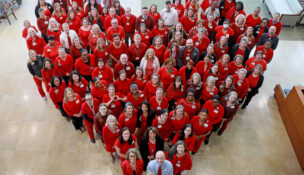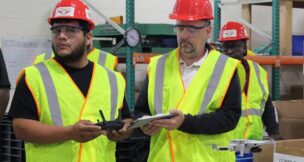Bill aims to track abuse of vulnerable adults
Melinda Waldrop //March 13, 2019//
At the 1977 dedication of a building bearing his name in Washington, D.C., former vice president Hubert Humphrey said: “The moral test of government is how that government treats those who are in the dawn of life, the children; those who are in the twilight of life, the elderly; those who are in the shadows of life, the sick, the needy and the handicapped.”
“It’s a test that we quite frankly fail in this country, because we don’t value older people,” said Cindy Coker, public services director for the S.C. Bar. “We’ve got to take a look at valuing and honoring and caring for people who are aging, because if we’re lucky, we’re all going to live long enough to be old.”
A bill currently before the S.C. House Judiciary committee seeks to address the well-being of the elderly by providing an additional layer of protection for S.C.’s aging population. The Vulnerable Adult Maltreatment Registry Act would require the S.C. Law Enforcement Division and the S.C. Department of Social Services to establish a registry of abuse, neglect or exploitation of vulnerable adults.
Questions surround the bill, such as how a perpetrator would land on the registry and which state agency would be responsible for maintaining it, but experts on aging and eldercare agree it is a valid idea, at least in principle.
“The key point is accountability,” said Johnny Belissary, administrator of New Generations Adult Day Centers, which has facilities in Florence and Marion and plans to expand to Greenville. “We have to be able to protect our seniors. We have an aging state. People migrate to our beautiful sands and shores every day, some with money, some with just enough to retire, and some, unfortunately, (who) are struggling to get by. With an aging population in the state (and) because we’re a destination state, we have to protect people.”
While nursing homes have rating systems to help consumers check for violations and nursing professionals must maintain state licenses, in-home health care providers can operate with less scrutiny. Offenses that don’t rise to the level of criminal convictions like assault or fraud won’t show up on background checks.
“Some people don’t have the means to go to assisted living and they don’t quite need the skilled care that a nursing home would provide,” said Belissary, also an attorney who works with the S.C. Institute of Medicine and Public Health on long-term care issues. “How do we protect these people? How do we keep bad actors from getting involved in their world?”
A GROWING CONCERN
The scope of the issue facing South Carolina and the nation will only grow in the near future. More than 70% of elder adults will require long-term care at some point, according to the U.S. Administration on Aging, while U.S. Census data shows that 1 million S.C. residents will be 65 and older in 2030 — the year that adults age 65 and older will outnumber children ages 18 and under for the first time (23.5% to 19.8%) nationwide.
“The adult population, the vulnerable population, has grown tremendously in 20 years, with no additional revenue or resources for DSS,” said Teresa Arnold, state director for AARP South Carolina. “We are not funding adult protective services hardly at all. We’re down to two or three million dollars for the whole state.
“I do think it’s probably vital, in the long run, to be able to identify folks who have abused a loved one, (but) until adult protective services is funded properly, it’s hard to imagine how we could take on another program over at DSS.”
Along with where the adult abuse registry would be housed, other concerns with the bill involve the due process rights of those facing abuse accusations.
“Where is it, how do you get on it, can you get off it, who can access it, and who pays for it?” Coker said. “That’s always a concern with every state that we’ve looked at that has a registry.”
Said Arnold: “It’s modeled on the same premise, pretty much, as the child abuse registry. So once you have determined that someone has abused a child, they go on the registry now. This would be the same for adults. The issue right now is, in adult abuse cases, they don’t actually identify a perpetrator per say.”
Dale Watson, director of S.C.’s Long-Term Care Ombudsman Program, said the bill is part of a larger push to bring more awareness to adult protection issues in the state.
“Do we have the same visibility all the time that child protective services have? Not always,” she said. “We say sometimes our seniors aren’t quite as cute as children, (but) just as you see with children, (adults) can be being abused right in front of you. You have to be vigilant and know the signs. Just because somebody looks happy, they may not be happy.”
Belissary has seen his share of horror stories, from a client on robbed by a caregiver and left unable to afford Christmas present for her grandchildren to his own great aunt, swindled of $90,000.
“She had no margin of error the rest of her life,” Belissary said. “She was a vulnerable adult that a registry could have possibly helped. We found out years later that the individual that stole from her had done this to multiple people.”
In the absence of a registry, Arnold urged people seeking caregivers to ask around and find someone recommended by those they trust. Coker said state seniors would also benefit from other measures, such as a public guardian program and the streamlining of a system for reporting elder abuse that “is just sort of in disarray. There is not a single point of entry (and) you don’t know where to go.”
While acknowledging that the vulnerable adult abuse registry bill would not eliminate the physical or financial exploitation of senior adults, Belissary said it would provide an important first step.
“The registry can’t stop it, but it can sure put up a roadblock and at least show the citizens that the state of South Carolina is serious about trying to protect them in their homes,” he said. “You’re not going to catch everybody, but if we catch one, it’s served a purpose.”
This article first appeared in the March 11 print edition of the Columbia Regional Business Report.
F















